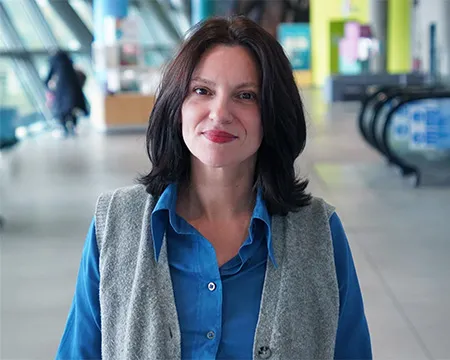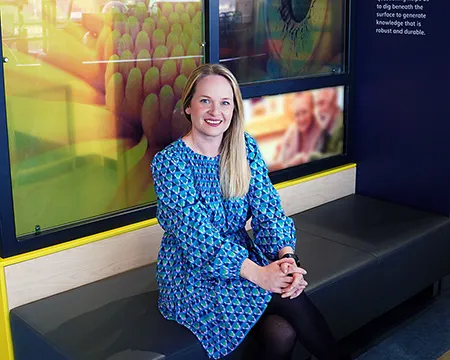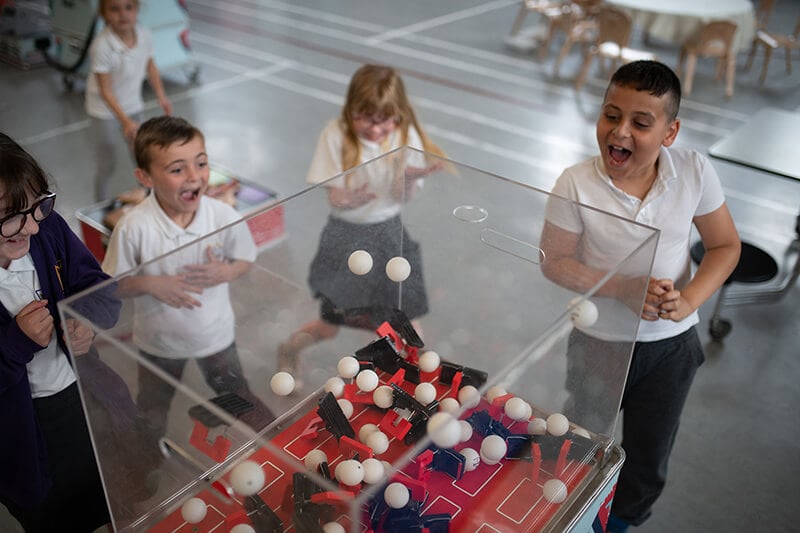Formula For Study Success

For senior school pupils throughout the city, study leave is about to begin. As students embark on this stressful six-week period, Claire Gemson from Glasgow Science Centre asks if there is a formula for successful revision and finds out how technology is shaping the way today’s students revise.
The Wrong Way to Study?
If you think back to your own study leave, your revision tools were probably no more sophisticated than an island of flash cards surrounded by a sea of fluorescent highlighters. Fast forward to more recent times and it turns out that re-reading tottering towers of textbooks might not be the most effective route to revision at all. Research by Professor John Dunlosky of Kent State University looked at the ten most popular revision methods such as re-reading, highlighting/underlining or making summaries. From these ten study techniques, two stood out as the most effective: spaced study, breaking your study down into smaller chunks over a longer period, and practising retrieval, actively recovering knowledge by self-testing.
Professor Martin Hendry, astrophysicist at the University of Glasgow, describes the benefits of having a study plan:
“Exams can be stressful but can still be a good way to demonstrate your knowledge. It’s all about being prepared and having a breadth of understanding at your fingertips that can adapt to new problems you haven’t seen before.”
Technology Reshapes Revision
Methods such as the Pomodoro Technique (where you set a timer for short chunks of time and then reward yourself with a five-minute break) and note-taking techniques such as the Cornell Method (which encourages pupils to take notes and revisit them in spaced gaps as opposed to simply making notes alone) have been around for decades. Technology, however, is increasingly popularising and breathing new life into these techniques and pupils are now able to take advantage of apps and websites dedicated to their use. Students are also using technology to carefully manage their time and distractions by using apps blocking access to social media for a set period.
Technology also had a huge role to play as pupils navigated the stormy waters of a global pandemic. As exams return to normal, the legacy of lockdown study is an unprecedented change in the way pupils engage with technology to revise at home. One local example is West Partnership Online School (West OS), an online school created by teachers. West OS provides recorded learning experiences and revision resources for children and young people and is freely accessible online (www.westpartnership.co.uk/west-os) and via a pupil’s Glow account.
Debbie McGorry, West OS Engagement Officer, takes up the story on the effect of the pandemic on study skills:
“Working online during COVID-19 lockdowns highlighted that young people are keen to learn in a more independent way. West OS resources allow them to select learning materials to suit their own needs. The range of videos covers early level through to senior phase and is ever-growing. In the senior phase, resources are available from National 4 to Advanced Higher level.”
A Masterclass in Revising
West OS has just launched Masterclass revision resources too. Experts in their field link their real-life subject knowledge to curricular exam areas. Masterclasses include actor Atta Yaqub for Higher Drama; lawyer Claire Mitchell KC for Higher Modern Studies plus Masterchef Gary MacLean for National 5 Practical Cookery.
The revision value in connecting with real life skills is something Tara Gibson, Senior Learning Co-ordinator at Glasgow Science Centre, feels strongly about: “For me, it is definitely easier to study when I can put it into practice or see where there is a connection to real life. That’s something we try to highlight in science centre activities.”
Is it time for cards and highlighters to retire gracefully? A group of Scottish secondary school teachers polled for this article thinks not. Flash cards and highlighters remain a firm favourite with students but it’s what they actually do with the cards that counts. Research points to the need to actively use index cards to test knowledge again and again. Studies also suggest that writing by hand offers significantly better recall than writing by keyboard. Glasgow Science Centre’s Susan Meikleham echoes this point: “I think technology absolutely has its place but there is no substitute for a pen and paper when it comes to studying and really getting the knowledge into your brain.”
The pen then remains mighty but today’s candidates can take advantage of the wide range of technology and online resources to create their own personal formula for success.
Further Information
This blog post by Claire Gemson is adapted from an article by Glasgow Science Centre that first appeared in Glasgow Times in April 2023.
Glasgow Science Centre has a range of curriculum-linked resources available: Teacher Resources and OurFuture.Energy
West OS is running live study skills sessions - Tues 18th and Thurs 20th April featuring advice on expert speakers on coping with exams, taking care of mental health, and how to study effectively. More details @west_os
Contributors to top tip list:
Abigail Jeorrett, Science Learning Co-ordinator, Glasgow Science Centre
Amy Childs, Science Learning Co-ordinator, Glasgow Science Centre
Susan Meikleham, Senior Learning Co-ordinator, Glasgow Science Centre
Ronnie Santangeli, retired Principal Teacher of Latin
Claire Gemson, Teacher
Top Tips for Studying
Glasgow Science Centre asked exam veterans for their best study tips. From an evening run to inspiration from Ancient Rome, you can read their top tips here:
1. Make a timetable well in advance of any exams that includes blocks of time for all the topics you want to focus on.
2. Use a rainbow of highlighters to summarise information and make connections.
3. Gym classes, or an evening run, are effective ways to wind down at the end of the day.
4. Try not to study past 9pm then get a night’s good sleep and start again early the next day.
5. Flash cards work better than pages of notes but make sure you understand the material on the flash cards and test yourself regularly.
6. Make a plan for what you're going to do each day and stick to it as much as possible. Include breaks!
7. Ancient Romans were able to carry out amazing feats of memory and we can learn something from them. The Romans could deliver speeches of up to 14 hours in length! They didn’t read them out, it was all from memory using a method known as the Method of Loci or Memory Palace technique. There are lots of ‘how to create your own Memory Palace’ videos freely available online if you want to give this a try for yourself.
8. In addition to planning your schedule, space out your revision so you have time to test yourself at regular intervals. Try Scholar and West-OS for free revision materials in addition to past papers.
9. Another tip is to ‘teach’ somebody else as part of your revision. Studies show that this can be remarkably effective and is known as the ‘protégé effect’- you learn via teaching. You could even arrange a buddy system with a friend and take turns explaining and questioning.
10. A good practical tip is to find a pen you like writing with. In some exams, you will be writing for several hours so it makes sense to find a pen you are comfortable with.
11. Try to spend some time in fresh air/nature every day. Research shows that this benefits your brain in many ways.
12. Be kind to yourself. Remember that if an exam does not go as well as you hoped, do not panic. Speak to your teachers - we know you are under pressure and we are there to support you.





